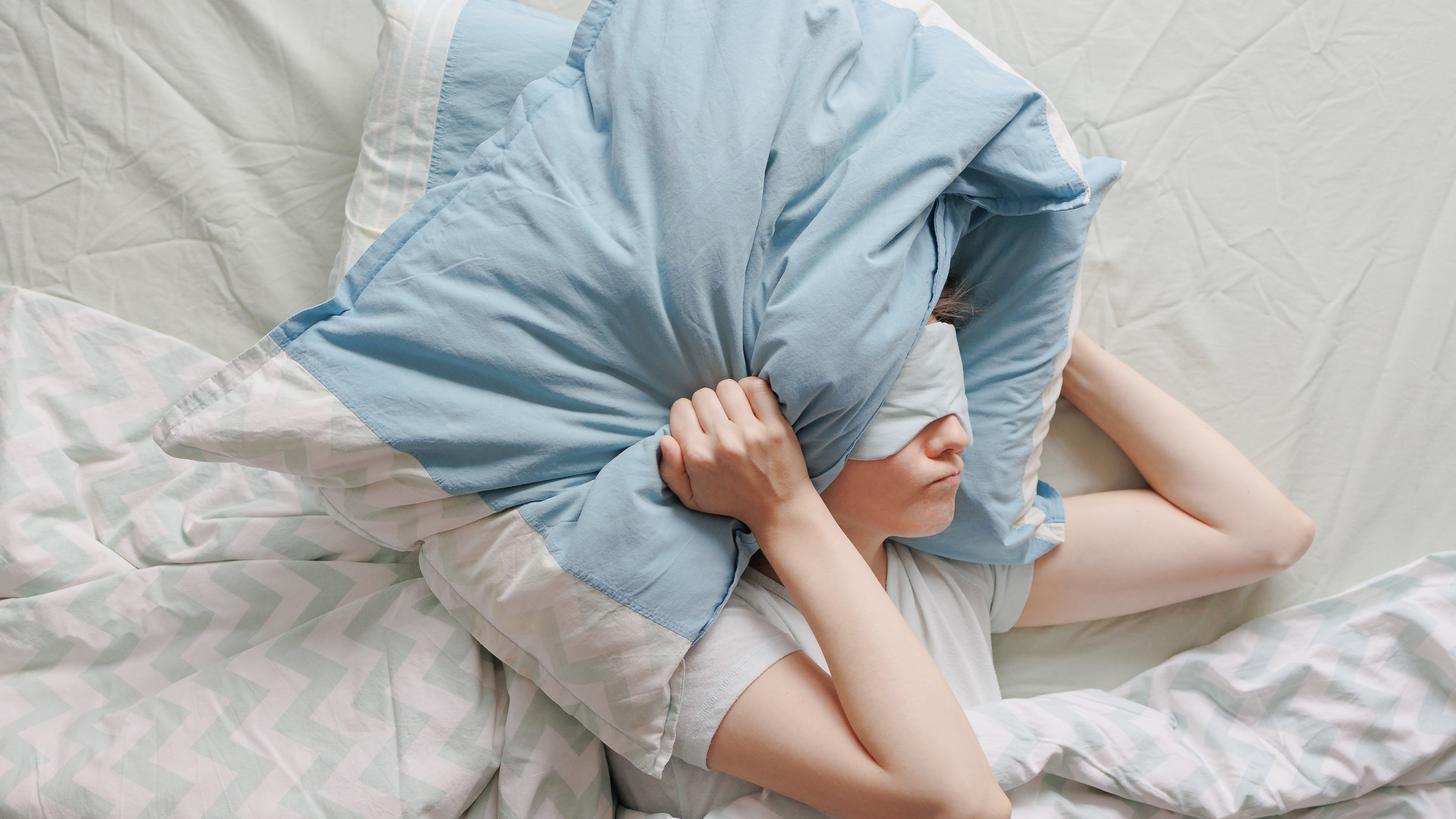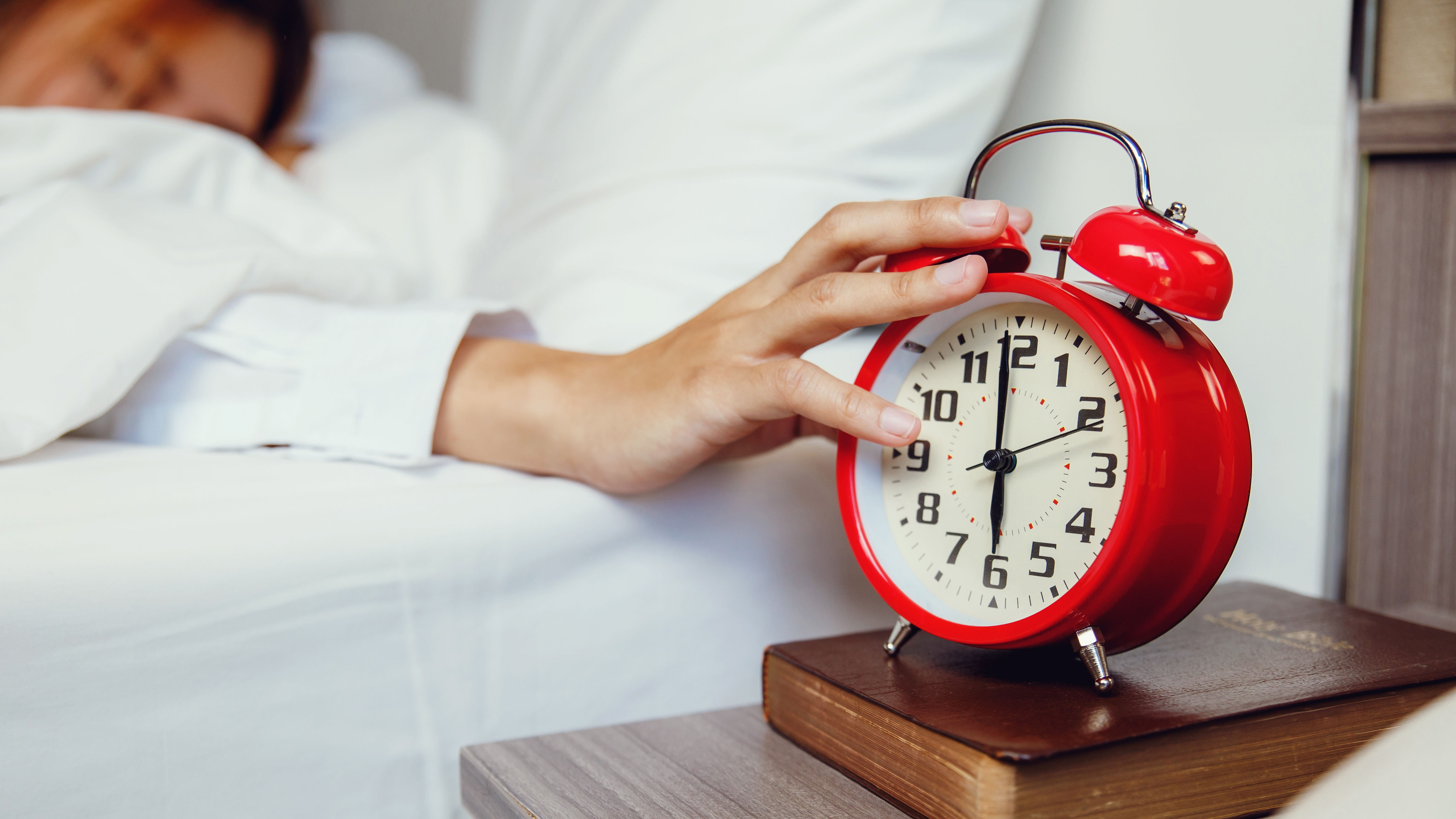Your weekend lie-ins are causing social jet lag — why that’s bad news for your sleep
What is social jet lag and how does it mess with your sleep? An expert explains

Do you stay up late or have long lie-ins on the weekend? The tendency to shift your normal sleep hours over the weekend (and during holidays and vacations) is enticing. You’ve had a long day and you want to kick back and relax for longer, right?
Most of us wouldn’t mind catching a few extra ZZZ’s the morning after a night out, too. But doing either or both of these can wreak havoc on your circadian rhythm and ruin your sleep.
Sleep scientists have a specific term for adjusting your sleep schedule in this way: social jet lag. This isn’t the same jet lag that occurs when you travel across different time zones. So what does social jet lag mean and how does it affect your sleep?
We have expert answers here, including the short- and long-term effects social jet lag can have on your health, and what you can do to avoid it from sabotaging your sleep and well-being. If you are struggling with sleep, make sure you have the best mattress for for your sleeping position and body, and speak to your doctor to rule out any other causes.

Behavioral sleep specialist Carleara Weiss, PhD, MS, RN, is a Research Assistant Professor at the University at Buffalo, State University of New York. She has a a Ph.D. in nursing focused on Behavioral Sleep Medicine and Circadian Rhythms, and is a member of the American Academy of Sleep Medicine Sleep Research Society.
What does social jet lag mean?
Social jet lag involves the difference in sleep times on nights before school or work days versus “days off.” For most of us, this would involve having one standard sleep schedule from Sunday night through Friday morning, and another from Friday night through Sunday morning.
Short-term effects of social jet lag can be experienced with as little as a one-hour deviation in your sleep schedule. However, the risks associated with social jet lag are strongest when sustained over time—i.e., when going to bed late over the weekend is your norm, and you try to “catch up” once Monday rolls around.
Sleep scientists coined the term “social jet lag” assuming that people align with a social clock—dependent on school or work obligations—during the week and adjust to their biological clock (i.e., innate circadian rhythms or sleep-wake tendencies) when things are more flexible over the weekend.
In other words, social jet lag is simply a misalignment between social and biological times. Moreover, your sleep chronotype can impact the likelihood of social jet lag and experiencing its adverse effects.
Sign up to get the BEST of Tom's Guide direct to your inbox.
Get instant access to breaking news, the hottest reviews, great deals and helpful tips.
“People who are night owls (have evening chronotypes) may observe these effects faster than ones with morning chronotypes,” shares behavioral sleep specialist Carleara Weiss. For reference, late-to-bed, late-to-rise wolves and insomniac dolphins with inconsistent sleep schedules fall into this camp.
“In addition, age group and sex also influence the body’s response to social jet lag, as female Millennials and Gen-Z report more social jet lag,” the sleep expert continues.
The short-term effects of social jet lag
It might seem innocent enough to go to bed a little later and wake up a little later than usual—especially if you still get a minimum of seven hours of sleep. However, anyone who’s ever experienced a Monday “sleep hangover” likely knows that’s not the case.
According to Dr. Weiss, short-term effects of social jet lag include:
- Mood swings
- Irritability
- Reduced attention
- Trouble falling asleep
- Changes in eating patterns
- Lower levels of physical activity

Can social jet lag affect your long term health?
Again, social jet lag might not seem like it’s a big deal… but research shows otherwise. After all, you’re still disrupting your sleep patterns—in some cases in a similar manner to traveling across time zones—so it’s natural and expected to experience undesirable side effects.
Basically, if you go to bed and wake late each and every weekend, it can be similar to flying across the country during this same time period. When framed that way, you may be able to grasp the toll it can take on how you feel and function.
How social jet lag increases risk of depression
“Long-term consequences of social jet lag are connected to circadian rhythm disruptions, affecting our biological clock's overall function in the body,” Dr. Weiss explains. In case you missed it, your circadian rhythm affects far more than sleep alone, so it’s not just your ZZZ’s and energy that can take a hit.
Long-term consequences of social jet lag “include impaired glucose, fat, and protein metabolism, increasing the risk of diabetes and high cholesterol levels,” Dr. Weiss shares. “Additionally, a higher risk of cardiovascular diseases such as high blood pressure and stroke [can occur] due to increased cortisol levels.”
Social jet lag has also been shown to contribute to weight gain, a higher body mass index (BMI), and greater alcohol and cigarette use. The mental toll of social jet lag, Dr. Weiss continues, can also increase the risk of depression.
Social jet lag affects your gut health too
New research shows that social jet lag can negatively impact your gut health and dietary habits. Published in August 2023 in the European Journal of Nutrition, a study of nearly 1,000 healthy adults who generally slept at least seven hours a night—but shifted their sleep schedule by 90 minutes on the weekend—experienced “disadvantageous gut microbiome.” But that’s not all.
Social jet lag also elicited:
- Poorer diet quality with less plants
- Higher intakes of potatoes and sugary drinks
- Lower intake of fruits and nuts
- Slightly elevated markers of inflammation
How to avoid social jet lag
Dr. Weiss admits that keeping a consistent sleep schedule—seven days a week, 365 days a year—is easier said than done. Beyond advising to aim for this goal nonetheless, she offers a few parting tips that can help you avoid social jet lag by keeping your circadian rhythm on track for good sleep and good health.
“Reducing exposure to blue light from electronic devices is another important tip,” she says. “This light blocks melatonin, impairs sleep, and contributes to social jet lag.”
In addition, Dr. Weiss shares three things to add into your routine:
- Getting sunlight upon waking. “Exposure to morning light, at least 30 minutes of exposure upon awakening, helps ‘synchronize’ the biological clock and maintain a healthy rhythm,” she explains.
- Move your body in the morning. Dr. Weiss says exercising in the a.m. benefits circadian function—not to mention countless markers of physical and mental health.
- Eat at the same times each day. Consistency in meal times is key “to preserve hormone regulation and metabolism,” she explains, both of which are inextricably linked to circadian rhythm.
Michele Ross is a freelance writer based in Los Angeles. For Tom's Guide and TechRadar, she interviews medical experts for sleep tips and tricks, as well as reviews mattresses and toppers to see which ones are truly worth buying for different types of sleepers and budgets. She has also covered a range of sleep topics for publications and brands including Well+Good, HUM Nutrition, and Mini Bloom, among others.

